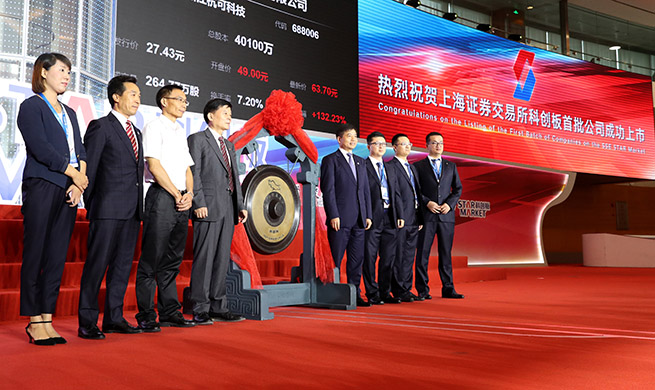SAN FRANCISCO, July 21 (Xinhua) -- Scholars of international and comparative law can help bridge the gaps between the United States and China, increasing mutual understanding and improving bilateral relations, a Stanford University law professor has said.
"A lot of misunderstanding between the two countries is often related to the fact that they overestimate their differences but underestimate their similarities," said Mei Gechlik, founder and director of the China Guiding Cases Project (CGCP) at Stanford Law School, in a recent interview.
Scholars can help bridge the gaps between the two sides' legal and business communities by identifying resemblances in both legal systems, while finding solutions to differences, she said.
Gechlik's project has been joined by Chinese universities. During a recent conference on U.S. and Chinese legal systems and practices held at Stanford, attendees from Stanford and eastern China's Zhejiang University and Fudan University discussed the topic over a video call.
At the conference, Gechlik talked about how court cases are not only crucial in Anglo-American legal systems, but are becoming increasingly important in jurisdictions that traditionally focus on legislation.
"Take China as an example: the country's guiding cases are, according to the Supreme People's Court, de facto binding precedents that courts handling similar cases are expected to follow in order to achieve the goal of having uniform application of law," she said.
"This helps ensure consistency and predictability in the Chinese legal system. This is certainly good news to all stakeholders doing business in or with China and helps lay a solid foundation for building strong relations between China and other countries," she said.
To help legal and business professionals in their work and provide them with practical information, the CGCP has been organizing "China Cases Insights" writing contests over the past two years.
Two entries in the 2018 contest "focused on how Chinese courts took unprecedented steps to recognize and enforce a Singaporean court judgment based on the principle of reciprocity and recognized and enforced a foreign arbitral award granted to companies established in the free trade zone in Shanghai," she said.
"The Chinese courts took these steps to help protect foreign parties' legal rights and interests," said Gechlik. "The typical cases themselves are short, but the featured pieces provide important details to help the readers understand the contexts and implications."
Another two entries explained how Chinese courts clarified sentencing standards and standards for determining work-related injuries, she added.
"All of these standards have a long-term positive impact on the Chinese legal system and the resulting improvements will help everyone in China," she said.













